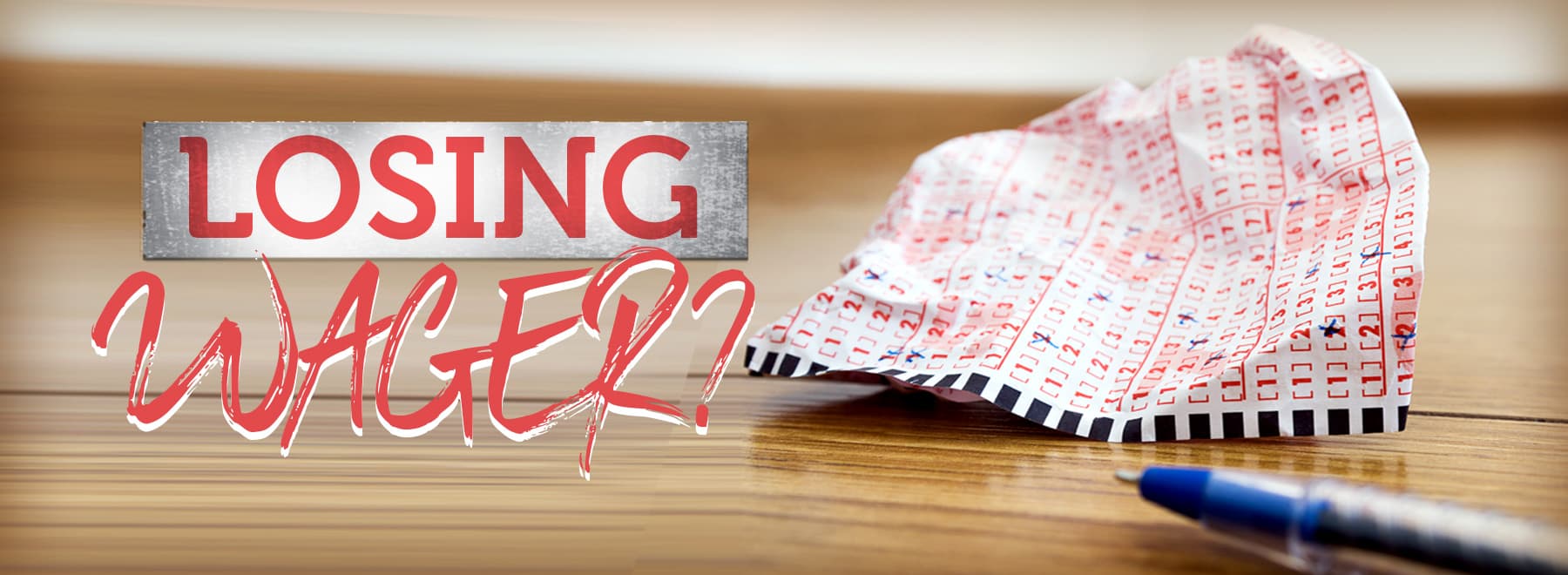Fresh betting bait could hook more gambling addicts
For Mississippians who like to wager, and for those who think they might, Mississippi has sweetened the pot.
On Nov. 25, sales of Mississippi Lottery tickets took off at about 1,200 retailers, and the state will make available for residents the multi-state Powerball and MegaMillions drawings beginning Jan. 30.
Likewise, today, more than a year after the launch of legal sports betting in Mississippi, the diversion is offered at about two dozen venues, particularly at dockside casinos, which have been legal in this state for going on 30 years.
But mental health experts wonder if much more is at stake than, say, the spread between Detroit Mercy and Gonzaga, or whether Aunt Tillie draws an ace with her 10 – that is, an uptick in gambling addiction.
“Our worry is that, now that gambling is becoming so ubiquitous in our culture, it may increase the problem, but we don’t know that,” said Rory Pfund, a psychology resident in the University of Mississippi Medical Center’s Department of Psychiatry and Human Behavior.

What we do know, said Dr. Jefferson Parker, UMMC associate professor of psychiatry and human behavior, is this: “The number of people who gamble will certainly increase.”
In May 2018, Arnie Wexler, the former executive director of the Council for Compulsive Gambling told USA Today he foresaw a dramatic surge in gambling addiction in the wake of the U.S. Supreme Court’s removal of the federal ban on sports betting.
Research is mixed, though, when it comes to determining whether a rise in gambling opportunities will trigger a rise in gambling problems, Pfund said.

“That’s because it’s already been a part of our daily lives,” Pfund said. “Sports betting is in the Mississippi casinos now, but it’s also been around a long time, illegally.”
A 2016 Gallup Poll showed 64 percent of Americans had gambled at least once within the previous 12 months. That same year, a survey prepared for the Association of Problem Gambling Service Administrators and the National Council on Problem Gambling reported that 3.9 percent of Mississippi adults, or more than 88,000, are “believed to manifest a gambling problem in Mississippi.” That is above the national rate of 2.2 percent.
But no research is available to show that one type of gambling is more addictive than another, Pfund said.
“Most people can do it for fun and not have any problems at all.”
Many casino visitors equate it with going out for dinner or to a club, Parker said.
“You expect to spend a certain amount of money, then go home.”
But beware of certain vulnerabilities, Parker said.
“One has to do with how you win,” he said. “If you win the first time you bet on anything, there is an increased likelihood that you could develop a problem.
“It’s like the first time you go fishing. If you sit for hours in a boat and don’t catch anything, you may not want to go back. But you can’t wait to go back if you catch something the first time you throw in your line.”
There’s more:
“Anyone who has ever had a problem with gambling shouldn’t start a new type,” Parker said. “And there is a connection between developing alcohol and drug abuse and developing a gambling addiction.”
Adding to that risk, he said, is the fact that casinos often give their best customers free drinks.
Even if research doesn’t show some betting options are more habit-forming than others, there are striking differences to note, Parker said. For instance, lottery gambling doesn’t take place in a seductive, alluring atmosphere, the kind casinos offer. If you win the lottery, no celebratory whistles and bells herald your triumph.
“When you play the lottery, most likely, you’re standing next to a 20-ounce energy drink in a Kwik-E-Mart,” Parker said.
But Parker and Pfund have both seen patients who told them they have fantasized about the lottery. Pfund, in fact, said he is more concerned about the lottery than he is about sports betting, because lottery players tend to have a more limited income.
“People who don’t have much – where is that $10 they lost going to come from now?” he said.
Also of concern: Mississippi’s lottery features a scratch-out ticket, which Parker and Pfund say is more habit-forming compared to a drawing, such as Power Ball, where participants may wait weeks to find out if they won. A scratch-out reward is “more immediate,” Parker said, “which has an impact on future behavior.”
If you’re wondering whether you have a gambling problem, Pfund suggests you ask yourself these questions:
• Do I become restless or irritable when I try to cut down?
• Do I try to keep family and friends from knowing that I gamble?
• After losing money, have I ever asked others for help in meeting my living expenses?
“If you answer ‘yes’ to just one of those questions, there is a 96 percent chance you might benefit from professional gambling treatment,” Pfund said.
In their experience, people who have a problem are more likely to be men, according to Parker and Pfund.
“And gambling disorders are more common among younger individuals compared to the rest of the population,” Pfund said. Often, married couples come in for treatment together, he said.
“Either the husband or wife, or both, will say they have a problem.”
The consequences of a gambling addiction can lead to poor health; they can be as life-shattering as those for drug and alcohol abuse.
“People take amphetamines so they can stay awake longer at the slot machines,” Parker said.
Gambling abuse can be deadly, Pfund said.
“People commit suicide over it. There have been cases of parents leaving their children in a car to gamble in a casino and forgetting the time.
“Gambling problems often co-occur with mental health concerns like anxiety and depression.”
Finding help can be its own problem. The aforementioned 2016 survey on problem gambling says substance use disorders are about 3.8 times more common than gambling disorders, but draw about 334 times more public funding for treatment.
Measured against the national average, the rate of spending is much lower in Mississippi, which ranks 36th: Three cents of public funds per capita go to problem gambling services, compared to an average of 37 cents for the 40 states that dedicate public funds (it’s 23 cents for all states combined).
During his recent work in a mental health clinic in Memphis, Pfund noticed many patients with gambling disorders were driving 30 minutes or more from Mississippi to see him. Others traveled farther, including from Jackson, about a three-hour trip.
UMMC’s Department of Psychiatry and Human Behavior has an addiction treatment program and has “the ability to treat gambling problems in Mississippi,” Parker said.
The Mississippi Council on Problem and Compulsive Gambling in Madison offers a toll-free 24-hour Help Line, 1-888-777-9696, and provides links to national organizations on its website, as does the Mississippi Gaming Commission. Intervention America, a drug rehab directory, lists more than 60 compulsive gambling treatment programs in the state.
For anyone considering laying down a bet, especially as a newcomer, Parker has some advice:
“Educate yourself about the odds first. Casinos, for instance, are required to advertise odds at each slot machine, but this information is online.”
Another thing: Approach gambling as a “recreational activity,” Parker said. You know about how much you will have to spend, how much you can afford.
“It’s your entertainment,” he said. “It will be like going to the movies.”
The above article appears in CONSULT, UMMC’s monthly e-newsletter sharing news about cutting-edge clinical and health science education advances and innovative biomedical research at the Medical Center and giving you tips and suggestions on how you and the people you love can live a healthier life. Click here and enter your email address to receive CONSULT free of charge. You may cancel at any time.



